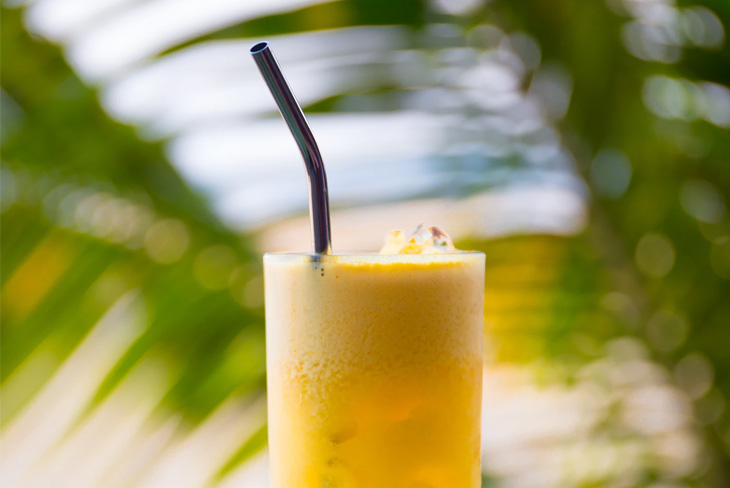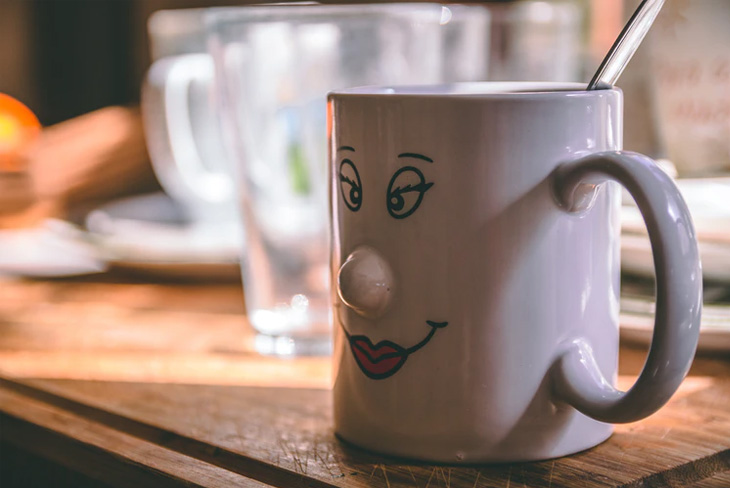7 of the best alternatives to single-use items

Let’s face it – the amount of waste we produce as a race is no small thing. With a population of nearly eight billion, we are becoming seriously pressed for space within landfills and much of our household waste ends up being tossed into our environment and affecting our environment. Common waste materials such as plastic can take thousands of years to decompose, meaning it will circulate in our ecosystems for generations, harming wildlife, flora, and our soil. How do we prevent this? One of the easiest ways to reducing your waste production is to switch to single-use items.
So many single-use items could be avoided or swapped out to prevent the accumulation of plastics in our environment. Here are seven of the best alternatives to single use items.
1. Stainless steel or glass straws
First thing’s first – you technically do not even need a straw. Many coffee shops and tea places are offering “sip lids” or strawless lids to avoid the use of plastic straws altogether. Plastic straws can make a huge impact on marine life, specifically turtles, as they can resemble food and, when ingested, can block airways or sit in digestive tracts and cause other issues. If you need a straw, opt for a stainless steel or glass straw. If you are daunted by the price, know that these straws only need a quick clean before they can be used over and over again! Some brands that sell these straws will even offer baggies and cleaners you can take with you on the go.
2. Reusable water bottles
Have you fallen into the habit of buying plastic water bottles from vending machines every morning? Save your coins and opt for a reusable water bottle instead. Not only will this encourage you to save more money, but it reduces the expense, the waste, and even the materials required to manufacture your daily plastic water bottle. You can carry it around and make a hydration goal for yourself!
3. Ceramic coffee cops

If you saw the massive environmental impact that came of the millions – even billions – of coffee cups that are casually disposed of every year, you would be floored. Many coffee cups are unable to recycled due to the wax coating on the interior of the cup. That being said, many if not most coffee stores will allow you to bring your own reusable or ceramic coffee cup to use as an alternative. This is a more sustainable alternative, and it can look good, too! There are plenty of small businesses and local stores that sell reusable coffee cups or ceramic coffee mugs that could benefit from your support.
4. Cloth grocery bags
We all know the plastic bags are no good for the environment. In fact, many countries have already banned plastic bags due to the impact that they have had on marine life. In the ocean, plastic bags resemble jellyfish – the number one dish for sea turtles. Some countries have opted instead for a small surcharge for the usage of plastic bags. If you want to contribute to cutting down on plastic usage, opt for a tote bag or an eco-friendly cloth bag! Keep it in your car so you do not forget it when shopping.
5. Beeswax food wrapping and bulk containers
Depending on where you live, practically everything at the grocery store is wrapped in plastic packaging that is intended to be thrown away after a single-use. In some places, fresh fruit and vegetables are prepeeled or cut and stored in plastic trays with wrap. It might be convenient to you, but it isn’t to our ecosystem. Avoid these items and opt for bulk stores where you can bring your own containers. If you are partway into that watermelon but you do not know how to keep it fresh, choose beeswax food wraps over cling-wrap!
6. Cloth diapers
If you are a new parent, the concept of re-usable nappies or diapers can be daunting to say the least. However, just think about how many diapers you go through in a week and how that could easily be mitigated by replacing them with a few cloth ones! Cloth diapers go through the wash and there are plenty of reusable diaper laundry basics guides available online to coast through to see what routine works best for you.
7. Choosing digital over paper
This one isn’t exactly new or particularly trendy, but choosing to take your notes digitally rather than physically can make a world of difference when it comes to helping out the environment. Paper requires the chopping down of trees to manufacture, meaning that the more you use, the more trees will be required. Avoid this by recycling your paper or, as a better alternative, choosing digital. Not only will your notes be harder to lose, but it can be much easier to organize and back-up!
Take the next step to going green – plant a tree with Panda7.
Now that you have gotten the hang of all the alternatives to single-use items out there, take the next step to going completely green by requesting a quote with Panda7. Through our partnership with Brynk.eco, we have pledged to plant 1 million trees by 2030. For every renter’s or auto quote we receive, we will plant 1 tree, and for every policy purchased we will plant 3. Join us on our mission and feel good about your purchase by requesting a quote today and participating in our pursuit of cleaner air.
You can see more information about our journey to giving back here, on our Giveback page:

